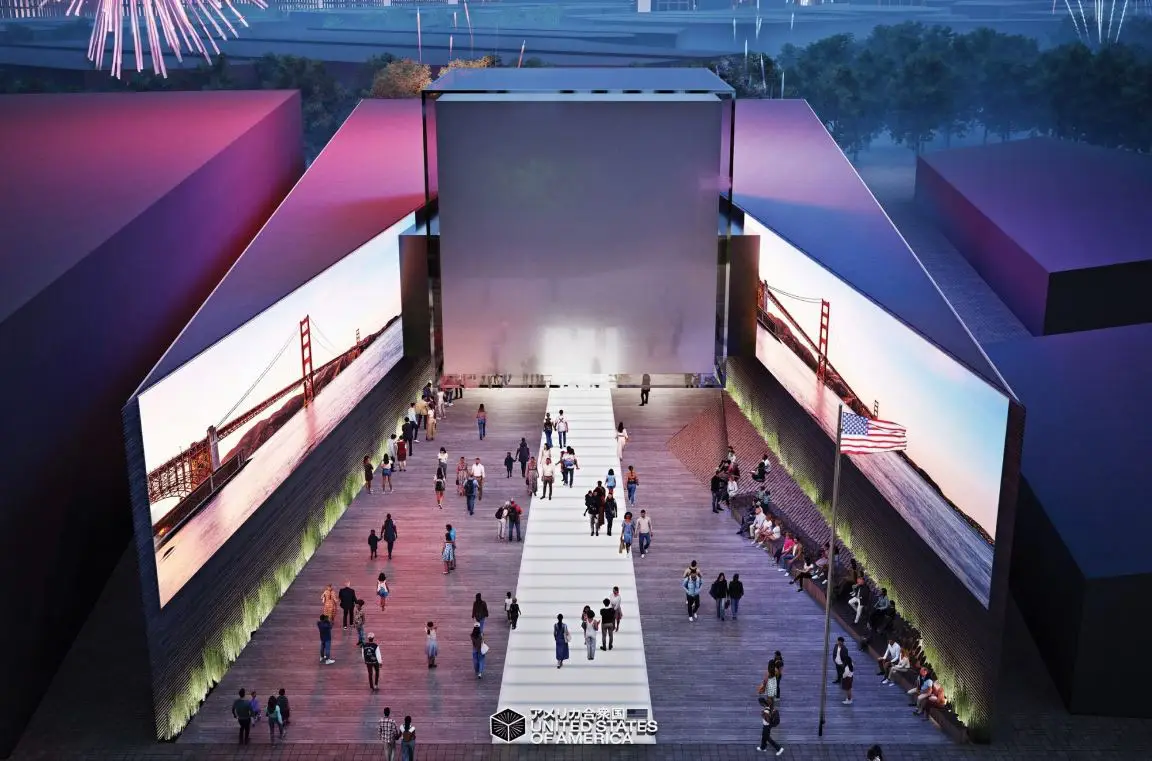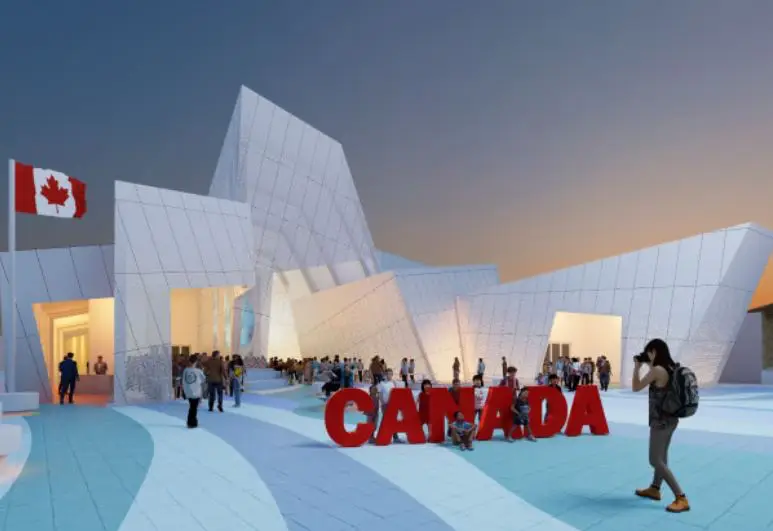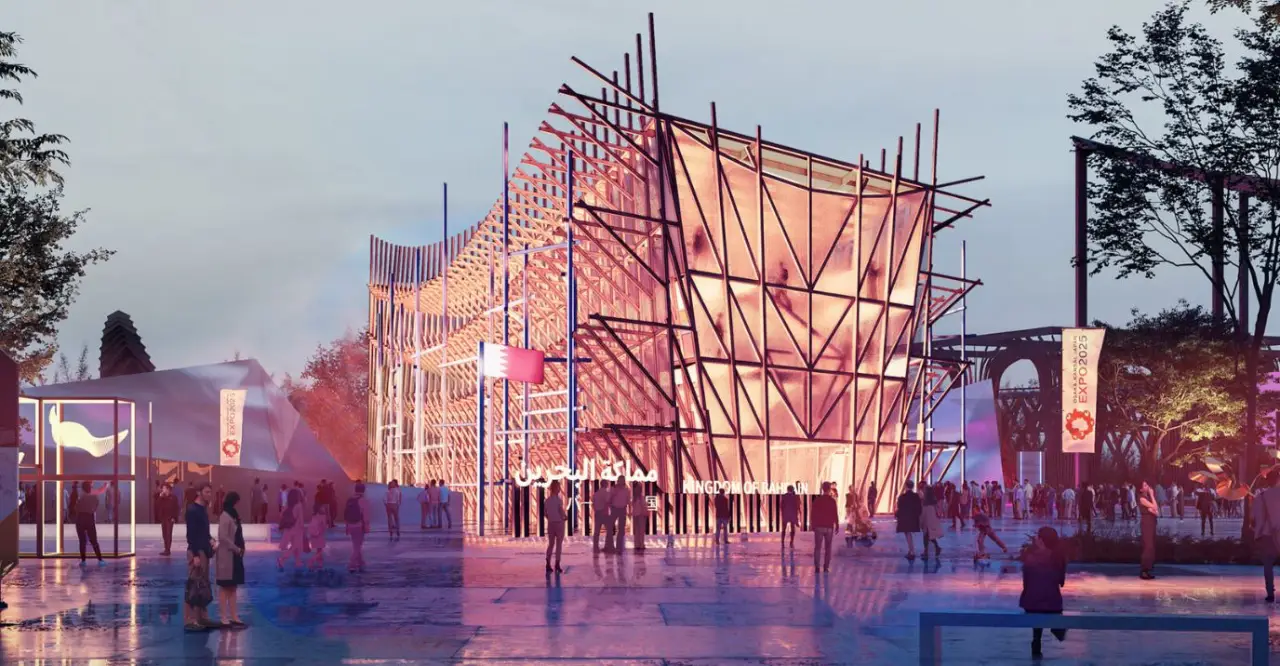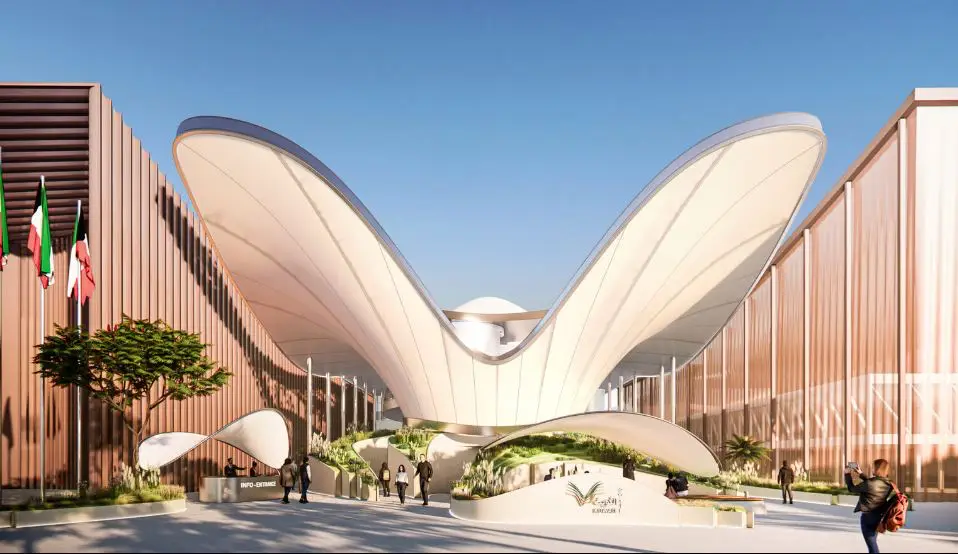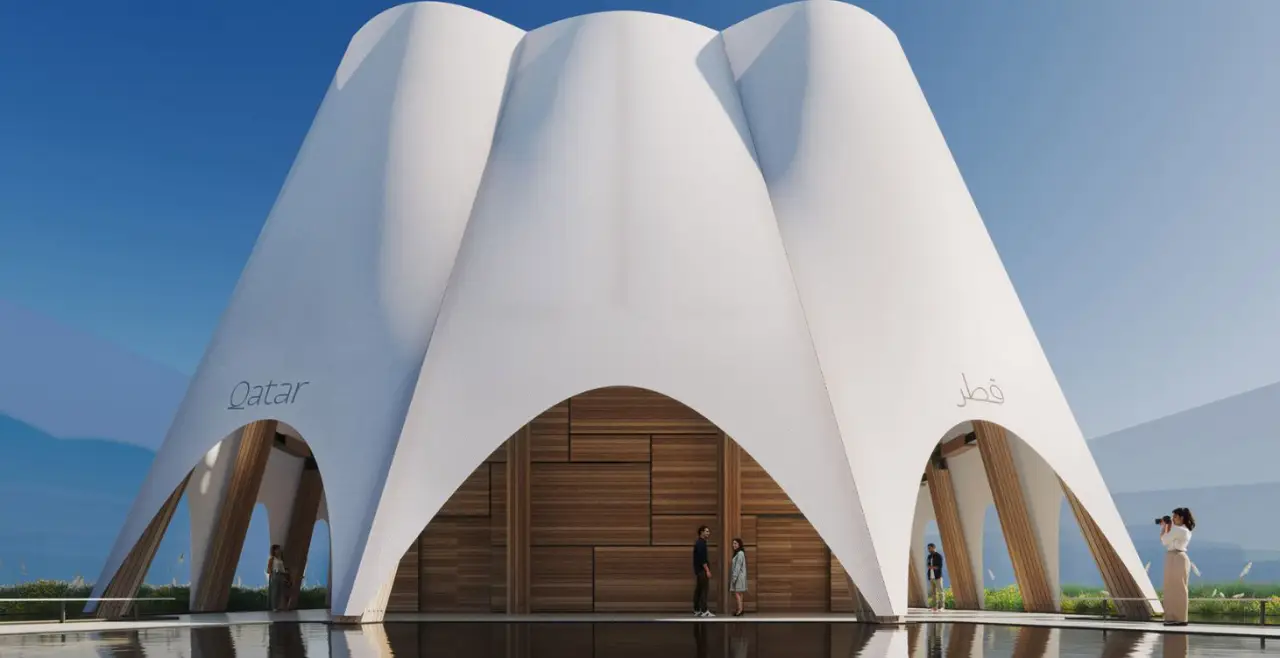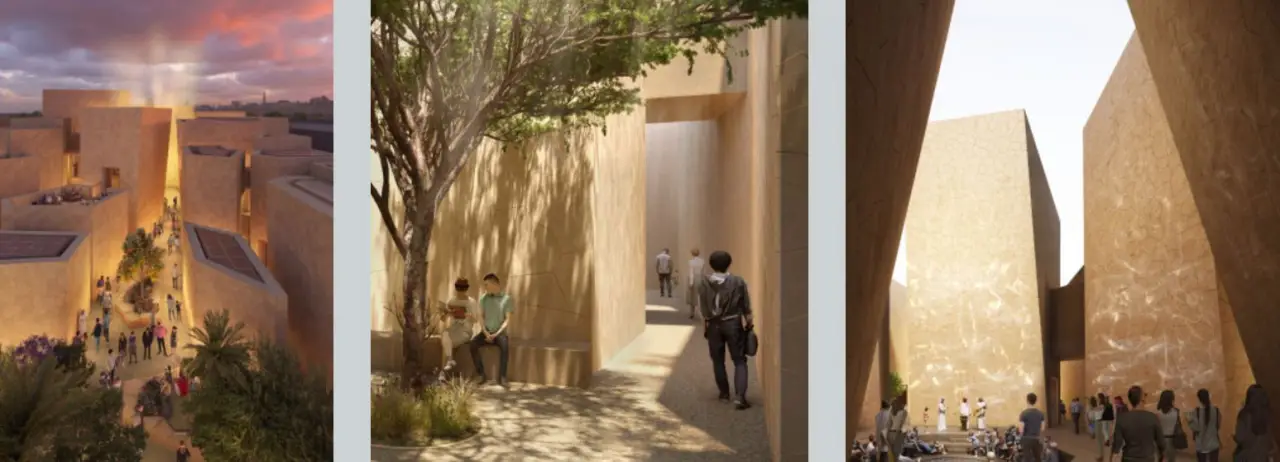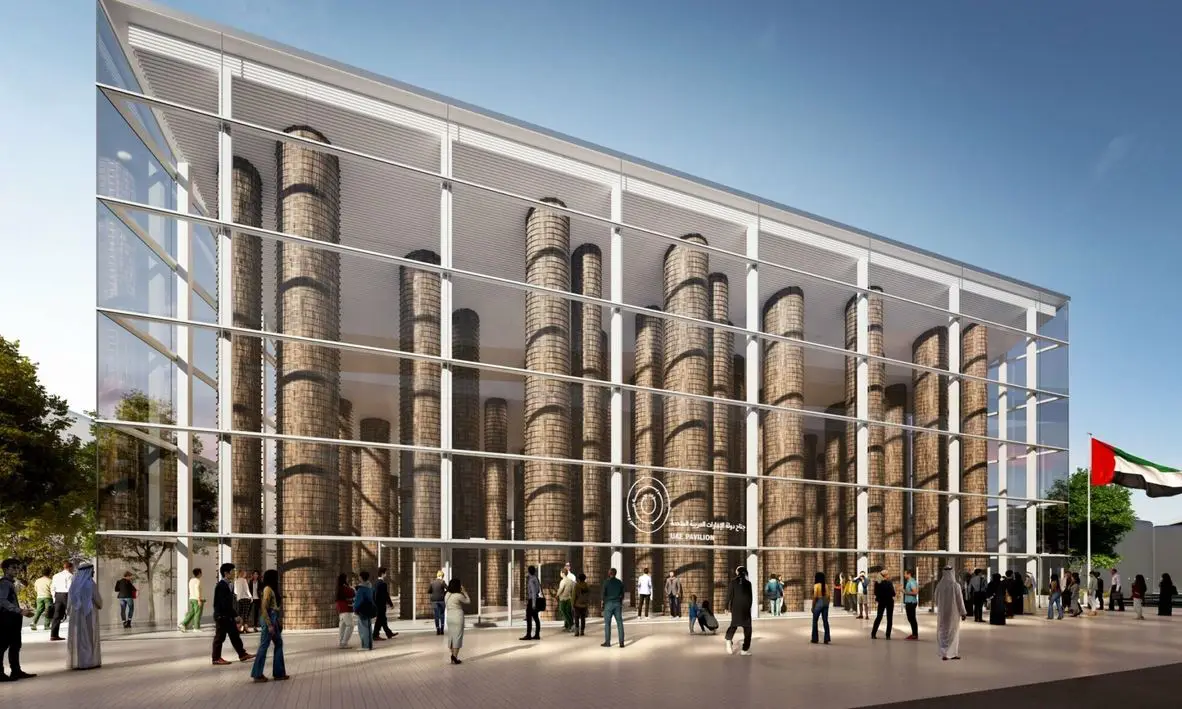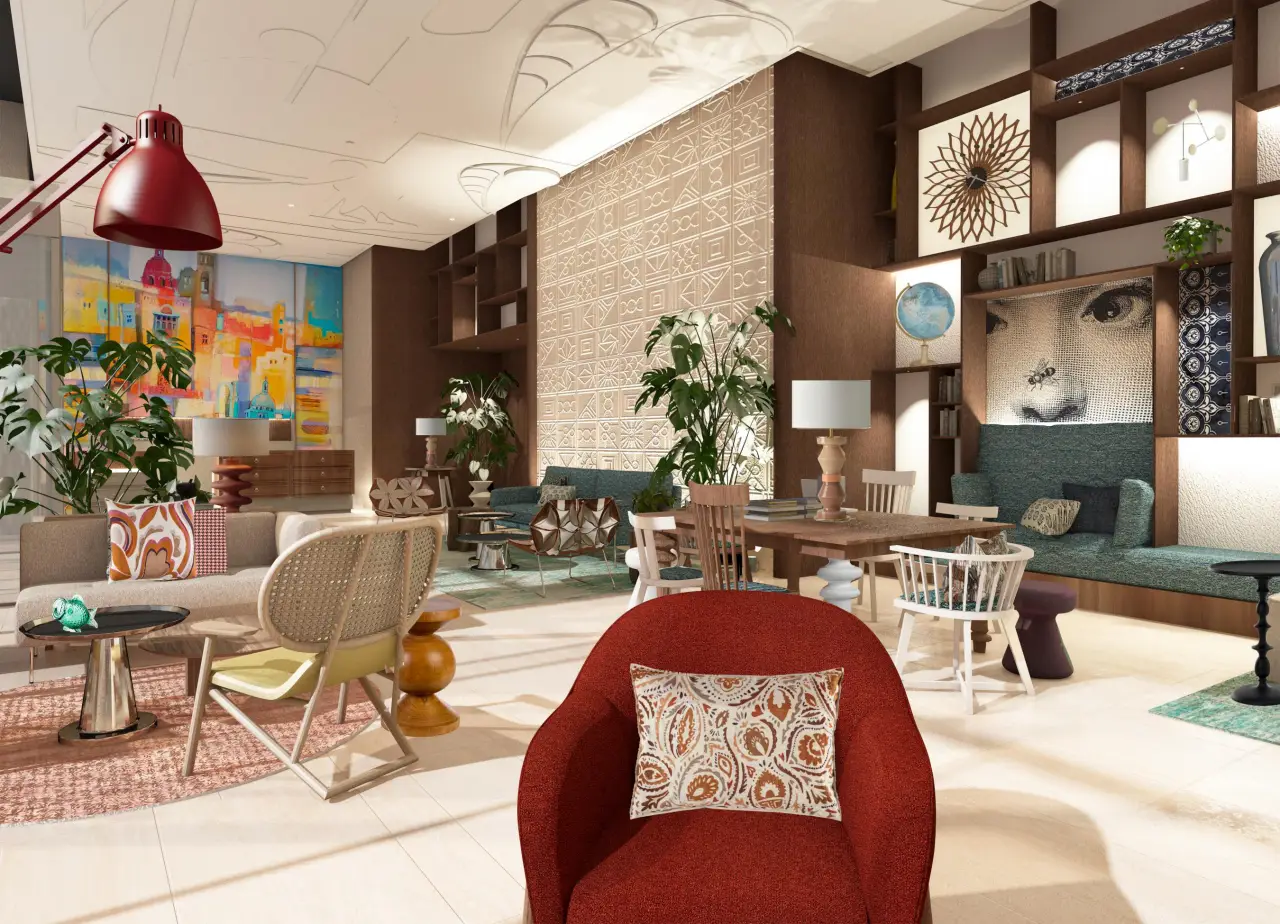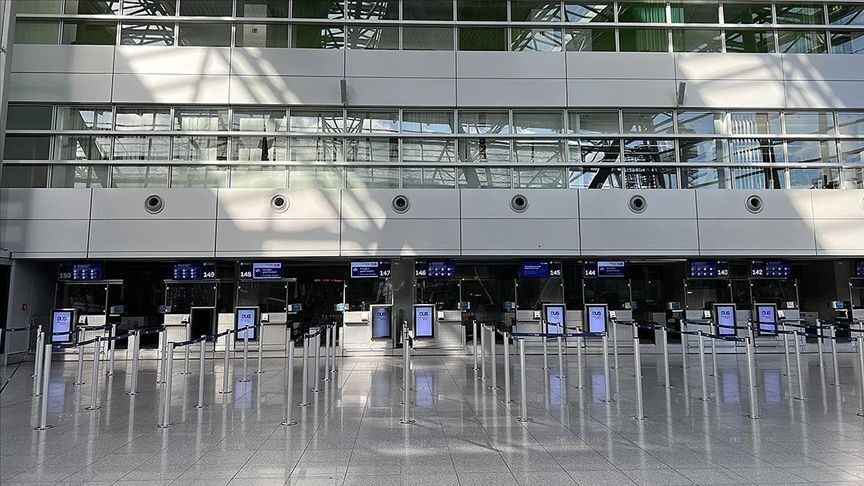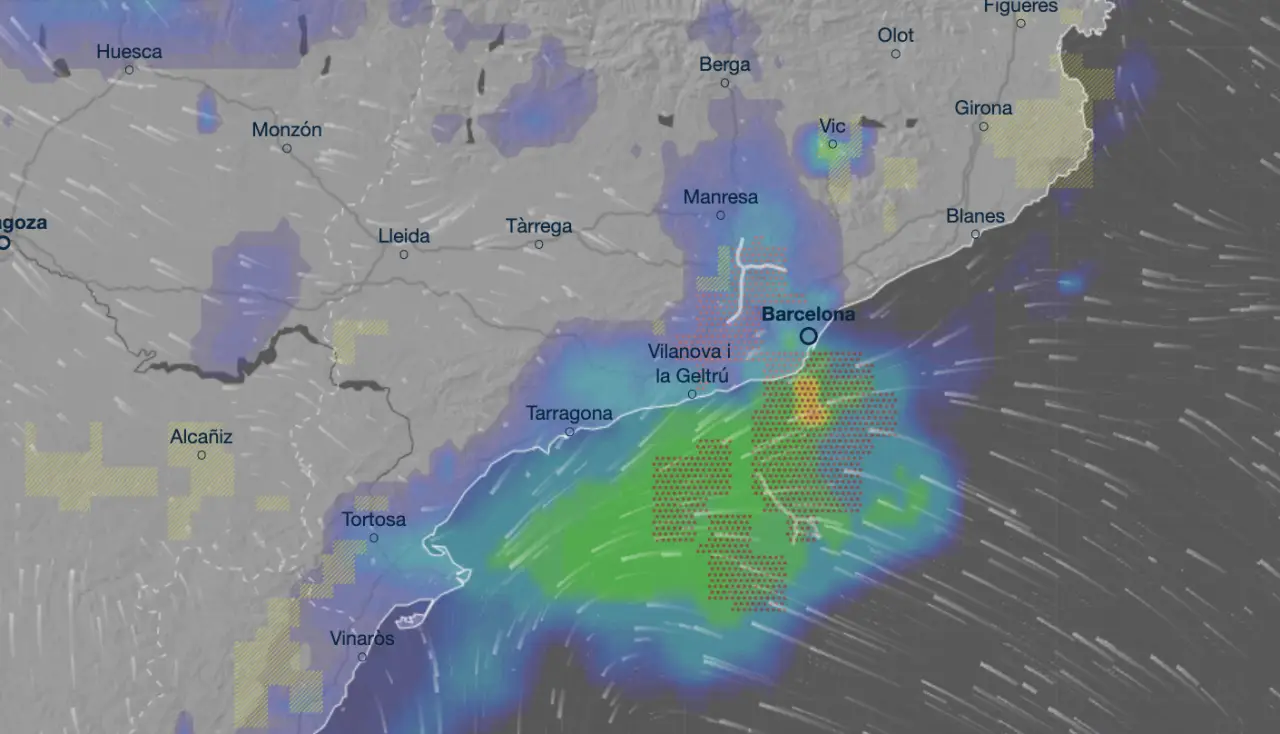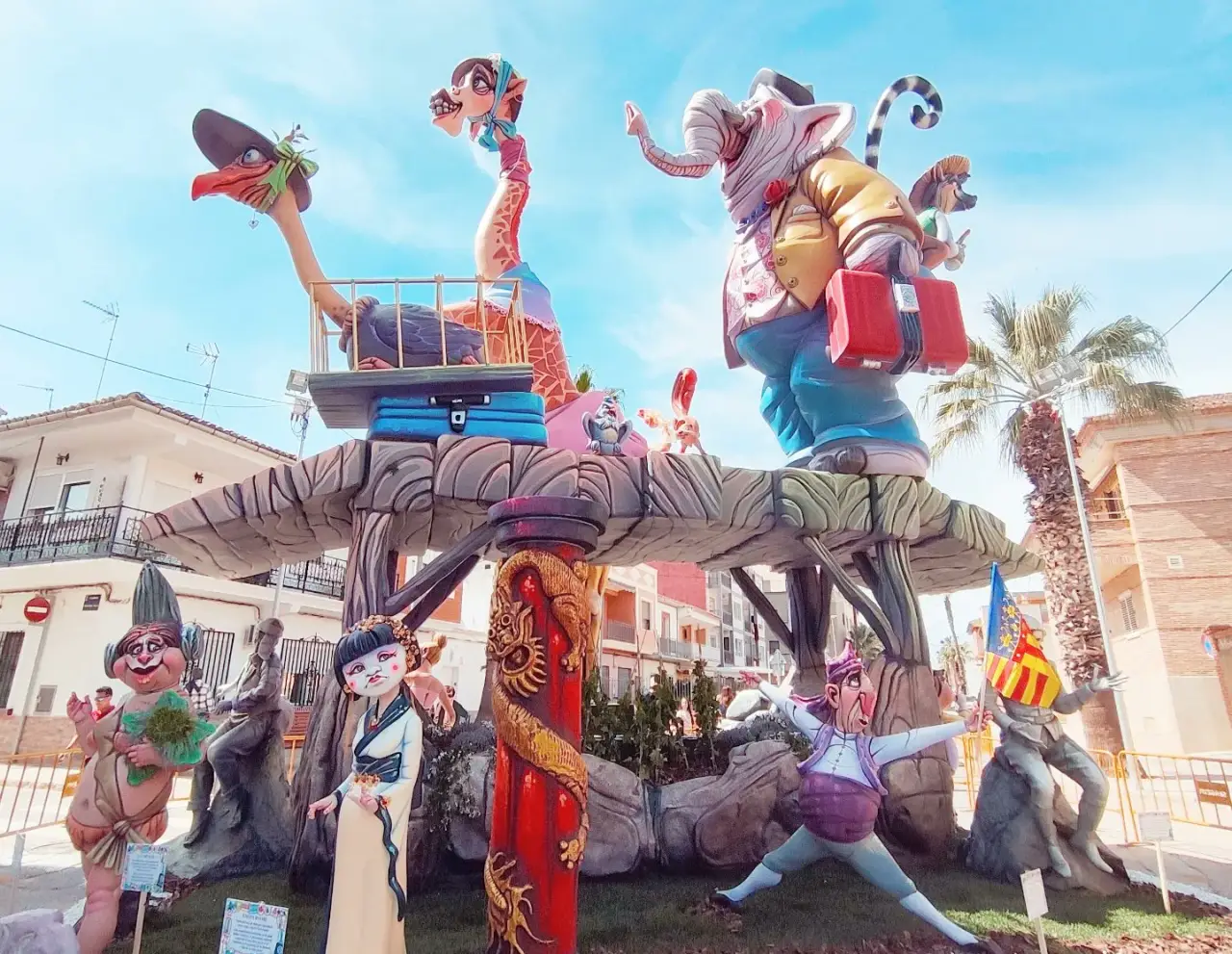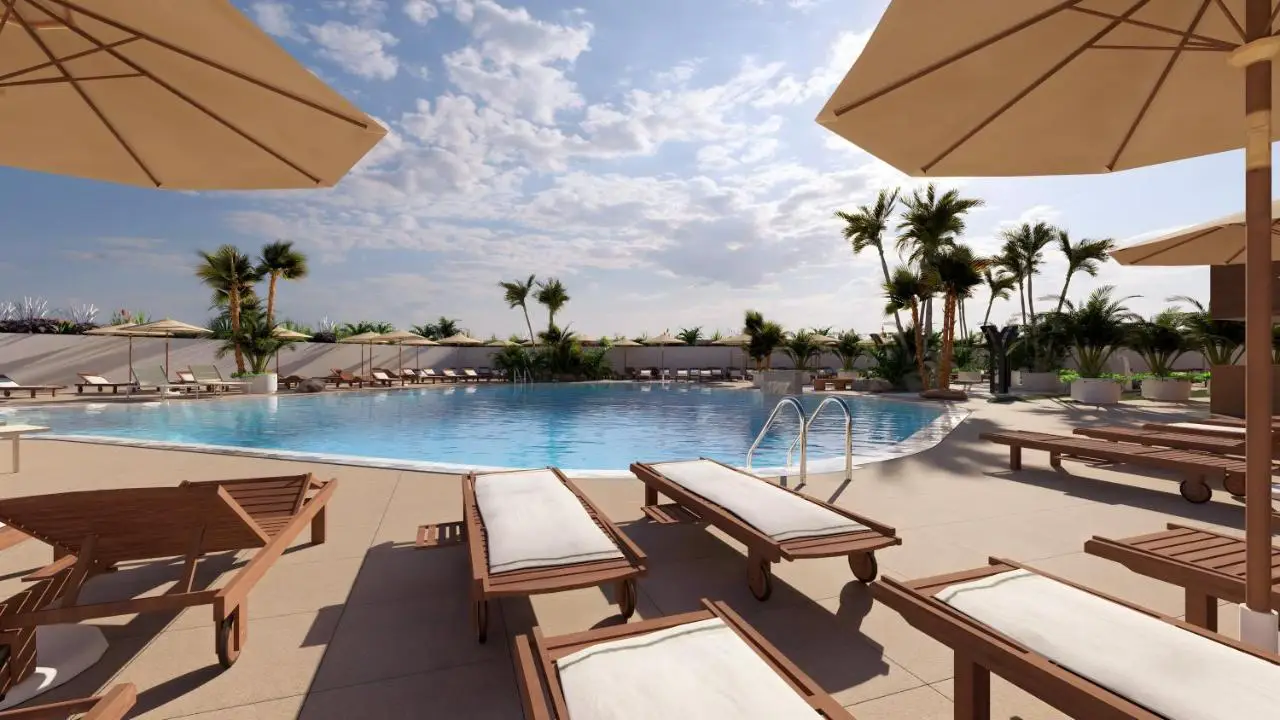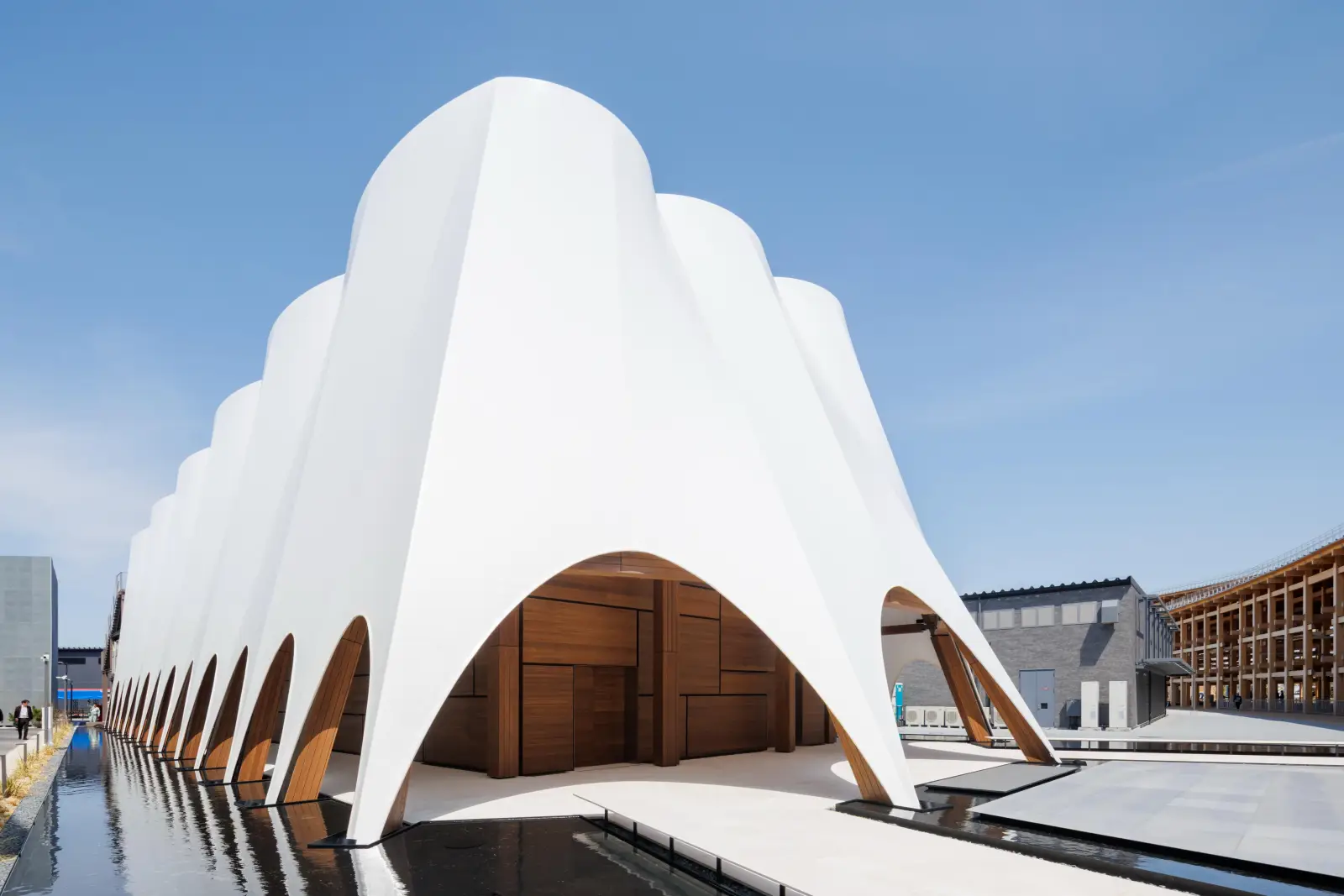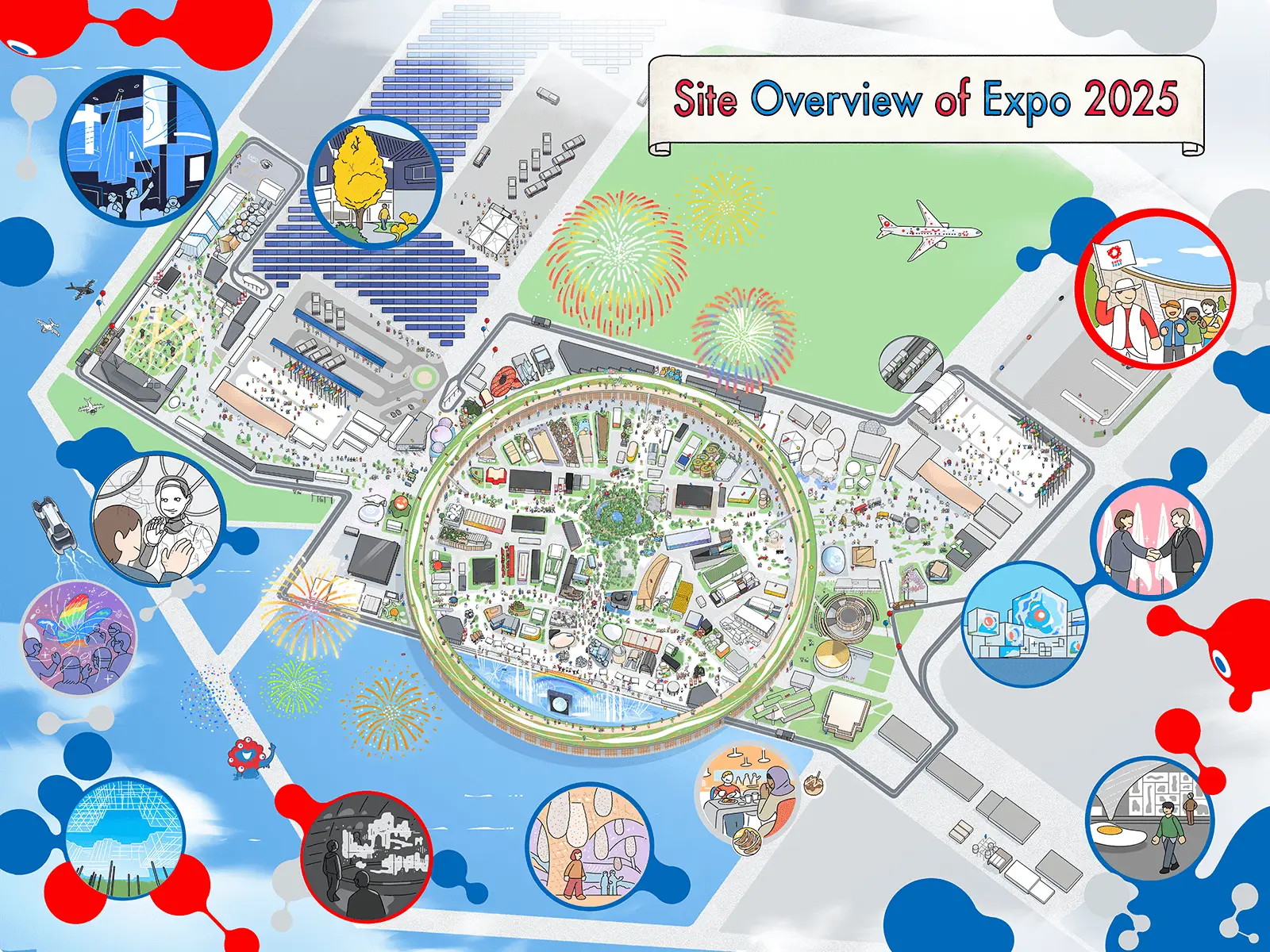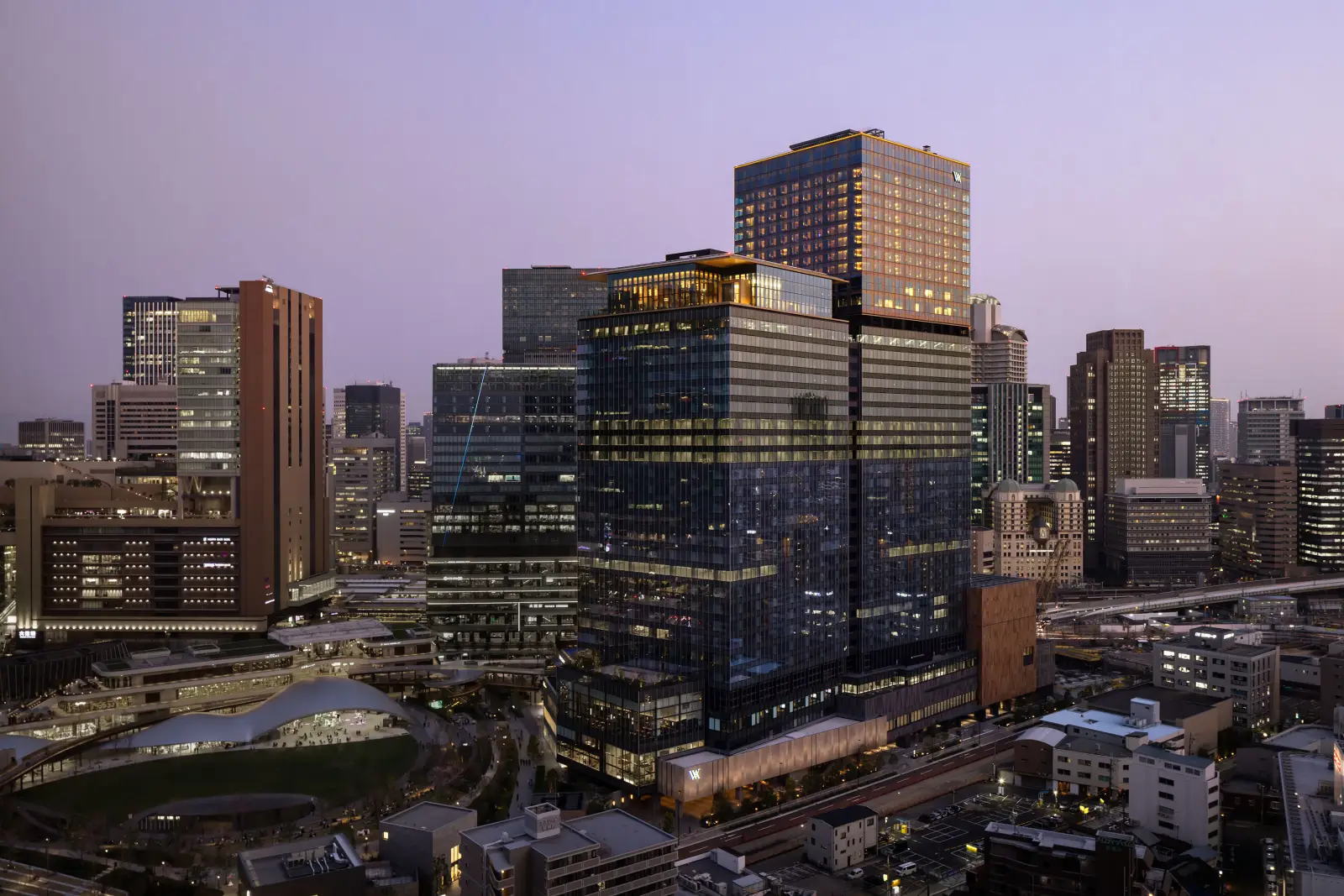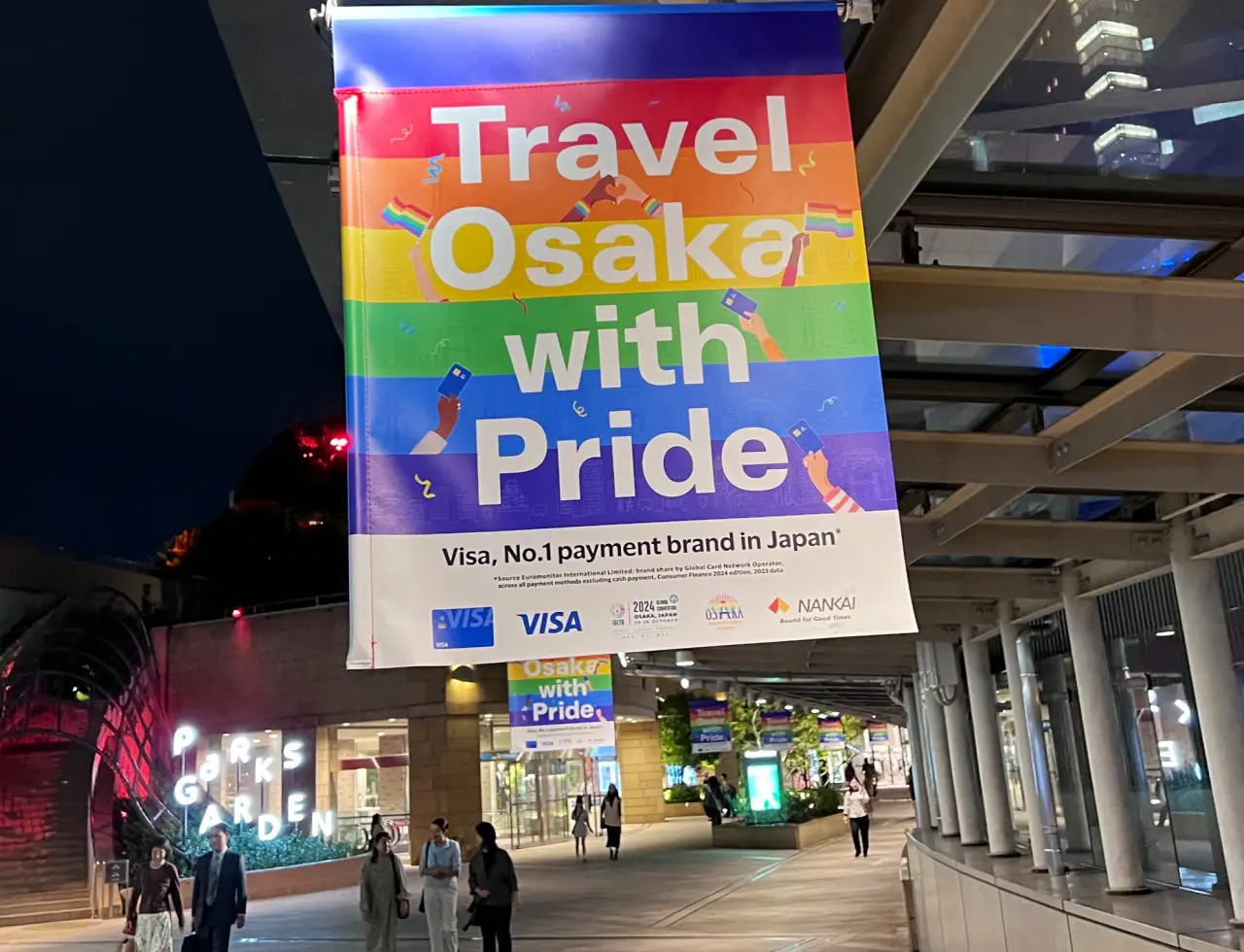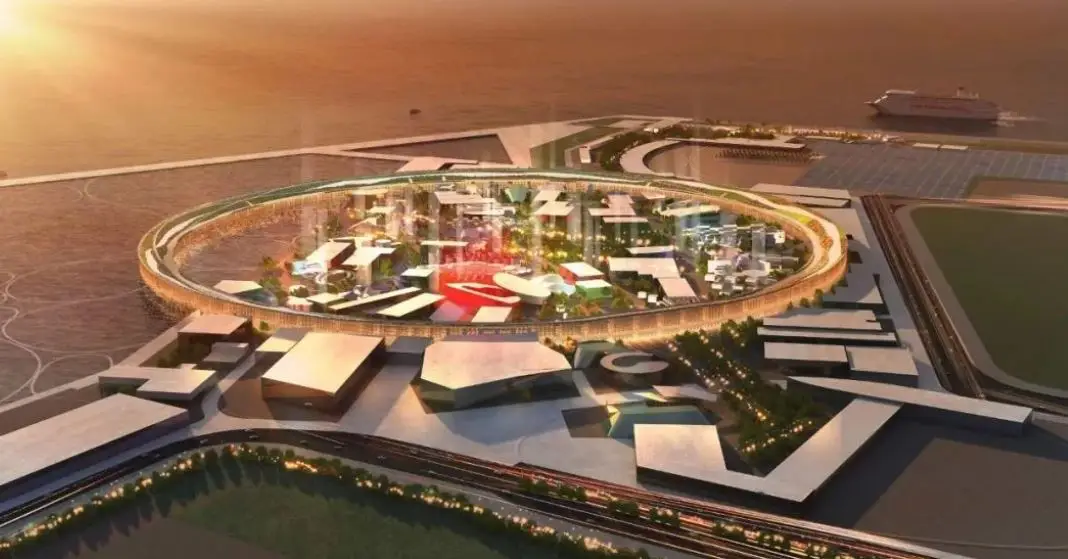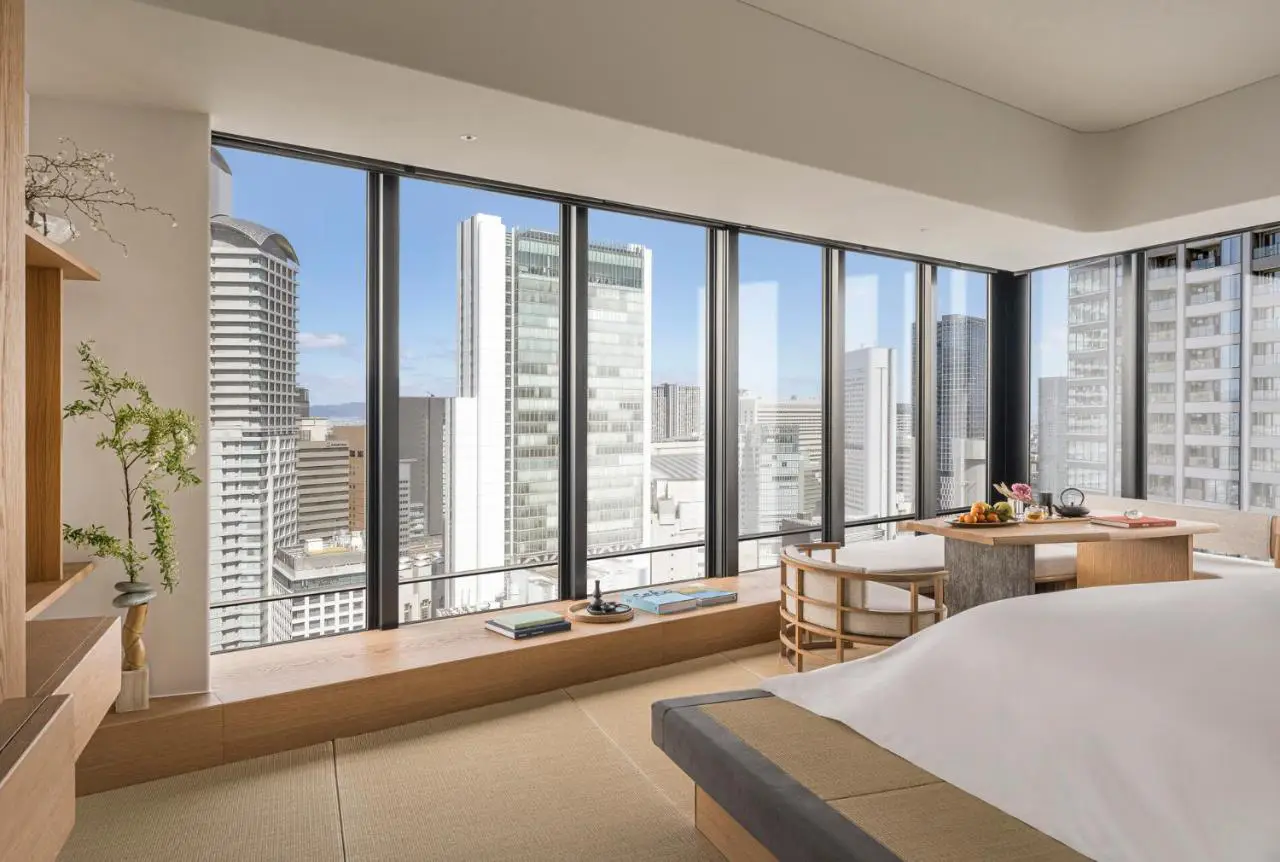Expo 2025 Osaka will take place over 184 days from April 13 to October 13, 2025 at Yumeshima (meaning Dream Island), an artificial island in Konohana Ward in Osaka, Japan.
More than 160 countries and regions have signed up to showcase their unique cultures and technological innovations. A variety of events will take place daily on-site, ranging from water shows to fireworks displays, to orchestral music and manga and anime-related events.
Construction of a gigantic Gundam robot statue from the popular Japanese sci-fi anime “Mobile Suit Gundam” was completed in Oct 2024, next to Japanese toymaker Bandai Namco’s futuristic spaceport-like Gundam Next Future Pavilion.
The national pavilions of European countries have been featured here. Here are visuals of some the national pavilions from North America and the Middle East.
NORTH AMERICA
USA
The U.S. pavilion aims to immerse visitors in exhibits representing what the country calls “the best of America,” ranging from culture and education to space exploration. The pavilion’s exterior adopts a minimalist design inspired by the Japanese traditional aesthetic of “wabi-sabi,” featuring two triangular buildings with wooden facades juxtaposed by an illuminated, suspended cube.
Under the cube, visitors will find an open-air courtyard with a performance stage, allowing them to explore music, dance and other entertainment, as well as cuisine. With the theme “Imagine What We Can Create Together,” visitors can enjoy envisioning themselves studying at prestigious universities, touring various parts of the country and appreciating its natural beauty, and joining a space journey to the Moon and beyond.
Canada
The concept of the Canada Pavilion is “Regeneration”. It is inspired by the thawing of frozen waterways at the onset of spring. The pavilion’s exterior architecture represents a natural phenomenon seen in Canada called an “ice jam” when ice on the surface of a river melts and flows, creating intriguing ephemeral ice formations. In contrast to the icy exterior, the interior will express Canada’s warmth, openness and optimism.
Visitors will be offered an “analog experience” at a time when many things can be enjoyed virtually, touching on music and other cultural performances and culinary programs that will bring chefs from Canada to serve local dishes and food ranging from lobster and beef to blueberries to maple syrup.
MIDDLE EAST
Bahrain
The pavilion will illustrate its history as a major port of trade and its exceptional cultural diversity and innovation. The pavilion’s structure reinterprets heritage boat-building techniques, featuring a wooden structure with an outer aluminum layer.
Designed for easy disassembly and recycling after the Expo, the pavilion also incorporates ancient cooling techniques to reduce reliance on mechanical cooling methods, adapting to contemporary needs and lowering environmental impact.
Kuwait
Clad in a translucent façade illuminated at night, the pavilion is centred around a central dome, an area inspired by the idea of resting and reflecting under a starry night in the desert. Additional spaces are modelled around features of Islamic architecture, including a courtyard and garden with typical Kuwaiti planting.
In the four exhibition rooms, visitors are invited to go through a multi-sensory journey of the state’s past, present, and future. The interactive and immersive spaces culminate with a vast explorative dome projection.
Oman
The pavilion takes inspiration from the diverse natural and topographical features of Oman. It is designed as a testament to the adaptability of Omani people and their harmonious coexistence with nature, and it is strategically aligned with the “Saving Lives” sub-theme, seeking to lay the first seeds for a future society that is human-centred and harmoniously coexists with nature.
Through the thematic engines of land, water, and people, Oman aims to establish extended links where diverse perspectives converge.
Qatar
The Qatar Pavilion is designed in collaboration with Qatar Museums, and will host an exhibition of Qatari advancements.
The pavilion is a complex wooden structure draped in a veil of white fabric, reminiscent of the sails on dhows, traditionally used for trade across the Indian Ocean and is a visual reminder of the long-standing maritime connections that have fostered ties between Qatar and Japan.
Saudi Arabia
Saudi Arabia’s pavilion will draw on the architecture of the kingdom’s traditional villages. The ambitious initiative will feature performances ranging from traditional dance and music to exclusive Saudi film releases, DJ sets and fashion catwalks.
It will also feature the majestic Al Ula human settlement and oasis, a heritage thousands of years old. All visitors will be able to pass through the Pavilion’s Saudi Souk, a meticulously curated gift shop boasting over 200 enchanting ‘omiyage’ souvenirs, each a testament to Saudi craftsmanship.
United Arab Emirates
The UAE Pavilion will highlight meaningful stories of the past, present and future, centred around the UAE’s ambitious efforts in innovation and R&D across healthcare, space exploration and sustainable technologies.
The UAE Pavilion draws inspiration from Emirati heritage, using elements from agricultural waste, particularly palm gravel, combined with Japanese expertise in wooden construction. This approach seeks to re-envision new methods and materials inspired by the nation’s traditions and culture, highlighting the importance of the past in enriching the present and future.
Main photo of Gundam statue: Credit Jiji Press


